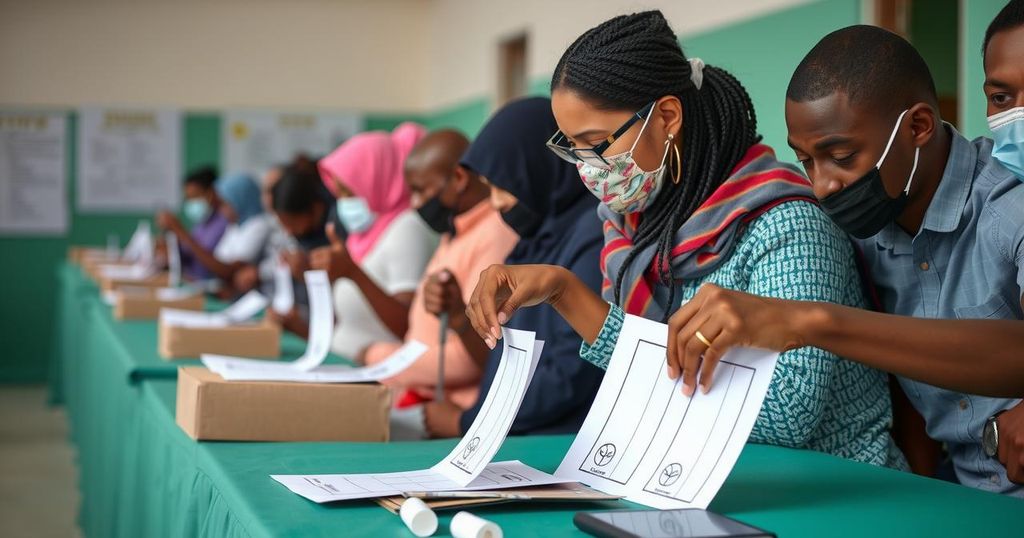Comoros Conducts Parliamentary Elections Amid Claims of Irregularities

Voters in Comoros are electing members for the 33-seat parliament amid claims of electoral fraud following President Azali Assoumani’s previous re-election. Approximately 338,000 voters are registered, with nearly 100 candidates contesting. The elections are set against allegations of authoritarianism and potential dynastic rule, as some opposition parties call for boycotts, while others advocate for participation to expose governmental flaws. Results are due by Friday.
Voters in Comoros are participating in elections for the country’s 33-seat parliament, following the controversial re-election of President Azali Assoumani. Approximately 338,000 voters are registered, as polling stations opened early on Sunday. Despite allegations of electoral irregularities in the previous election, the ruling party denies such claims. The last parliamentary elections occurred in January 2020, with nearly 100 candidates having been sanctioned by the Supreme Court to run this time.
Opposition figures accuse President Assoumani of authoritarian governance, expressing concerns about his potential plan to have his son, Nour El-Fath, succeed him in 2029. President Assoumani’s rule dates back to 1999 after he established power through a coup, and since then, he has secured three elections. In a noteworthy development, Assoumani conferred extensive powers to his son in 2024, entrusting him with oversight of government operations.
Amid these circumstances, certain opposition groups, such as the Juwa party led by former President Ahmed Abdallah Sambi, who is currently serving a life sentence, have urged voters to boycott the elections. However, other factions reject this call, emphasizing participation. Hamidou Karihila, a candidate for the opposition Hope of the Comoros party, expressed the view that engaging in the election process highlights the regime’s flaws, stating, “The Azali regime is weakened … by participating in these elections we are contributing to further exposing the flaws in its system and accelerating its inevitable fall.” Results of the election are anticipated by Friday.
The political landscape in Comoros has been turbulent, with President Azali Assoumani at the forefront since he first assumed power through a coup in 1999. His rule has been characterized by various elections, accusations of authoritarianism, and dissatisfaction among opposition parties. The recent parliamentary elections are pivotal, as they follow contentious events, including previous allegations of electoral irregularities. Furthermore, Assoumani’s actions regarding the empowerment of his son raise questions about dynastic politics and future governance.
The parliamentary elections in Comoros represent a critical moment in the nation’s political trajectory, amidst a backdrop of accusations against President Assoumani’s administration and the potential for dynastic succession. Voter participation is set against calls for boycotts and reflects the ongoing struggle between the ruling party and opposition forces. The outcomes of these elections, expected by Friday, may significantly influence Comoros’ political stability and governance moving forward.
Original Source: www.lismorecitynews.com.au







